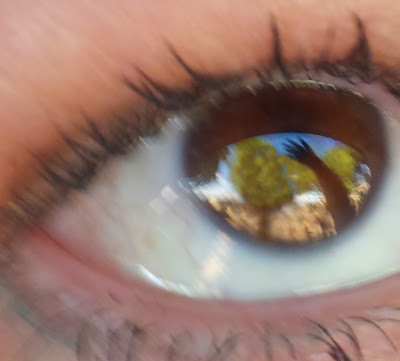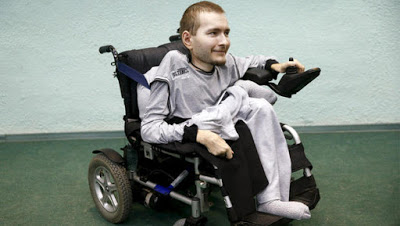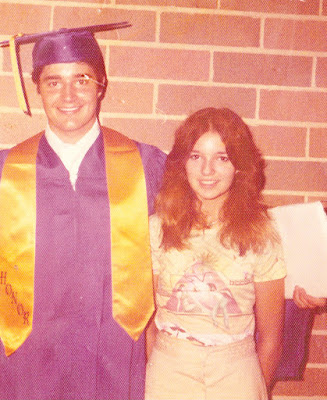

| Online: | |
| Visits: | |
| Stories: |

| Story Views | |
| Now: | |
| Last Hour: | |
| Last 24 Hours: | |
| Total: | |
Transplant Patients Taking On Characteristics Of Donors
Organ transplant has saved many lives and continues to be the best option for organs that are in end stages. There are, however, reports from some recipients that their personalities, tastes, even allergies changed after having a transplant. How much cell memory remains and is information about us held in every cell of the body so that, say, your liver carries the brain's information?
I had an interesting experience with a friend who had two separate transplants; a liver and a kidney, many years apart. After one transplant, she reported disliking certain foods, craving others, and seeming to “know” things that she had never been exposed to in her education.
Years later, when she had another transplant by a separate donor, she reported allergies she hadn't had before and a change in mood and heightened empathic abilities.
One such story that is a very indicative of the experiences is that of Claire Sylvia -
(LINK) Not only did the heart and lung transplant that 47-year-old Claire Sylvia received save her life, but it also made her the first person in New England to undergo the process. She’s also convinced that in addition to vital organs, she received some of her donor’s tastes, as if his memories were locked into his heart and lungs and consequently are now flowing in her body.
She told a reporter that when she was asked what she wanted to do first after the operation, she said that she was “dying for a beer right now.” This was strange to Claire, as she’d never enjoyed beer in the slightest before. Over the coming days, she also found that she was experiencing cravings for foods that she’d never liked or even eaten before, such as green peppers, Snickers chocolate bars, and strangely, McDonald’s Chicken McNuggets, something which she’d never had a desire to eat.
She also began to experience strange dreams. She would see a thin, young man who she believed was called Tim. Specifically, she had the words “Tim L” in her mind when she had the dreams. By searching through local obituaries of the days leading up to the day of her transplant, she came across Timothy Lamirande.
Timothy Lamirande was 18 years old when he died in a motorcycle accident on the same day as Claire’s transplant. He had been on his way home from a local McDonalds restaurant. A a bag of Chicken McNuggets was found in his jacket pocket when doctors removed his clothing in a desperate attempt to save his life.
She managed to track down Tim’s family, whom she hadn’t met before, and they confirmed to her that the cravings she was having were indeed all for foods that Tim had enjoyed very much, beer and all. She has remained in touch with Tim’s family ever since.
Is it possible for someone to change after organ transplant? Well, some might say it's just myth or perhaps it's the medications for preventing rejection, but scientists think there might be something to cell memory -
(LINK) The most common organ transplants include the cornea, kidney, and heart — with a heart transplant ranking the highest in five-year post-transplant survival rate of 74.9 percent. The heart ultimately stores memories through combinatorial coding by nerve cells, which allows the sensory system to recognize smells, according to cellular memory theory… Researchers focused on 10 patients who received a heart transplant and found two to five parallels per patient post-surgery in relation to their donor's history. The parallels that were observed in the study were changes in food, music, art, sexual, recreational, and career preferences in addition to name associations and sensory experiences. In the study, a patient received a heart transplant from a man who was killed by gunshot to the face, and the organ recipient then reported to have dreams of seeing hot flashes of light directly on his face…In a recent case of possible cell memory, Australian girl Demi-Lee Brennan's blood group was changed after receiving a liver transplant from her donor, reports the AFP. Nine months after the initial transplant, doctors discovered that Brennan had changed blood types and she acquired the immune system of the donor due to the stem cells of her new liver transferring over to her bone marrow. “In effect she had had a bone marrow transplant. The majority of her immune system had also switched over to that of the donor,” Michael Stormon, a hepatologist who treated Brennan at the Children's Hospital at Westmead, reported to the AFP.
If one is a believer in reincarnation, the phenomenon would be very similar in that the person having another incarnation on this earthly plane, might recall the mode of death, develop phobias, have scars, and the like based on the prior life's experience.
Someone in Russia offered to be the first ever head transplant donor, donating his head to a healthy body of a victim who died by brain injury. Is such a thing possible? Well, it is an extraordinary undertaking, but the man offering up his head has a deteriorating body and his quality of life is greatly hampered.
(LINK) Italian neuroscientist Dr. Sergio Canavero made headlines last year when he announced his plans to perform the first human head transplant in 2017. Since then, he’s recruited Chinese surgeon Dr. Xiaoping Ren to work with him, and now has found a volunteer patient for the procedure: a Russian man named Valery Spiridonov.
Spiridonov suffers from Werdnig-Hoffmann Disease, a rare and often fatal genetic disorder that breaks down muscles and kills nerve cells in the brain and spinal cord that help the body move. Spiridonov is confined to a wheelchair; his limbs are shriveled and his movements essentially limited to feeding himself, typing, and controlling his wheelchair with a joystick.
This questionably ethical experimentation will occur in December 2017.
My brother, Scott, passed away in 2001. He was 43 years old. He was an organ donor. A woman in Greece wrote to my sister-in-law to thank her for the corneas. I have to wonder if somewhere in Greece, a woman with a new chance to see again might be liking to listen to John Denver and adoring seafood and scuba diving.
“Who is Julia?”
“Body Parts”
“Hands of Orlac”
“The Eye”
“Hands of a Stranger”
*Tomorrow's post on GHT – “Alone in the Dark: Pushing Your Fear Quotient”*
Source: http://www.ghosthuntingtheories.com/2017/03/transplant-patients-taking-on.html







“Cellular Memory” is a fascinating concept. Considering that I don’t believe in coincidences, there are too many peculiar examples of this in recorded medical history for it to be a farce. Good Article:)